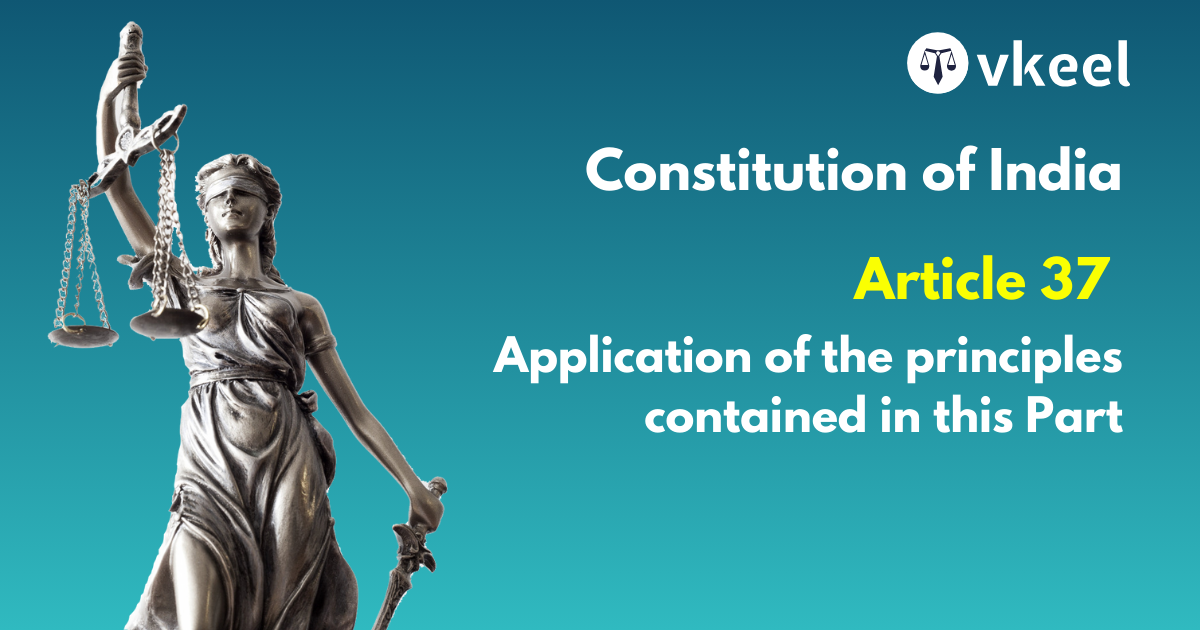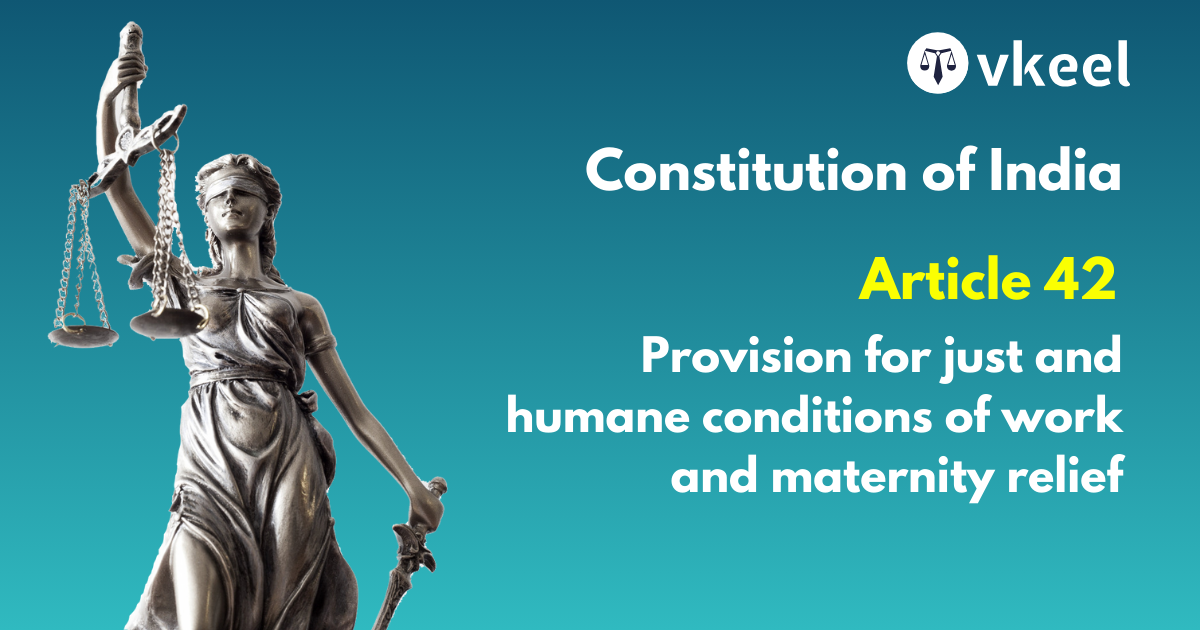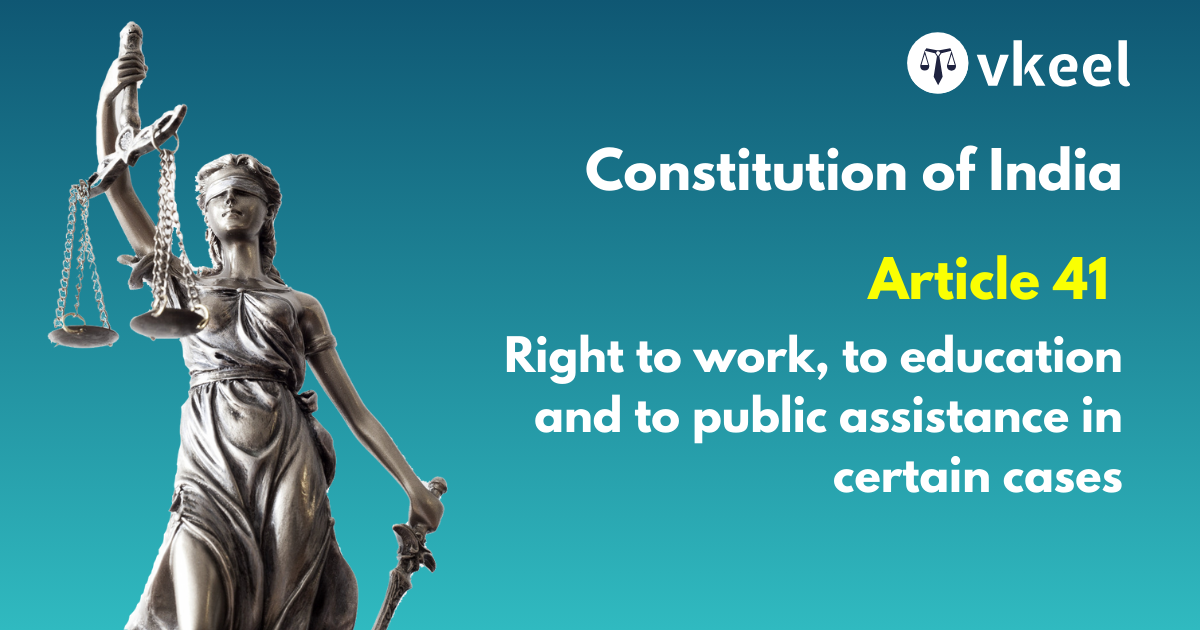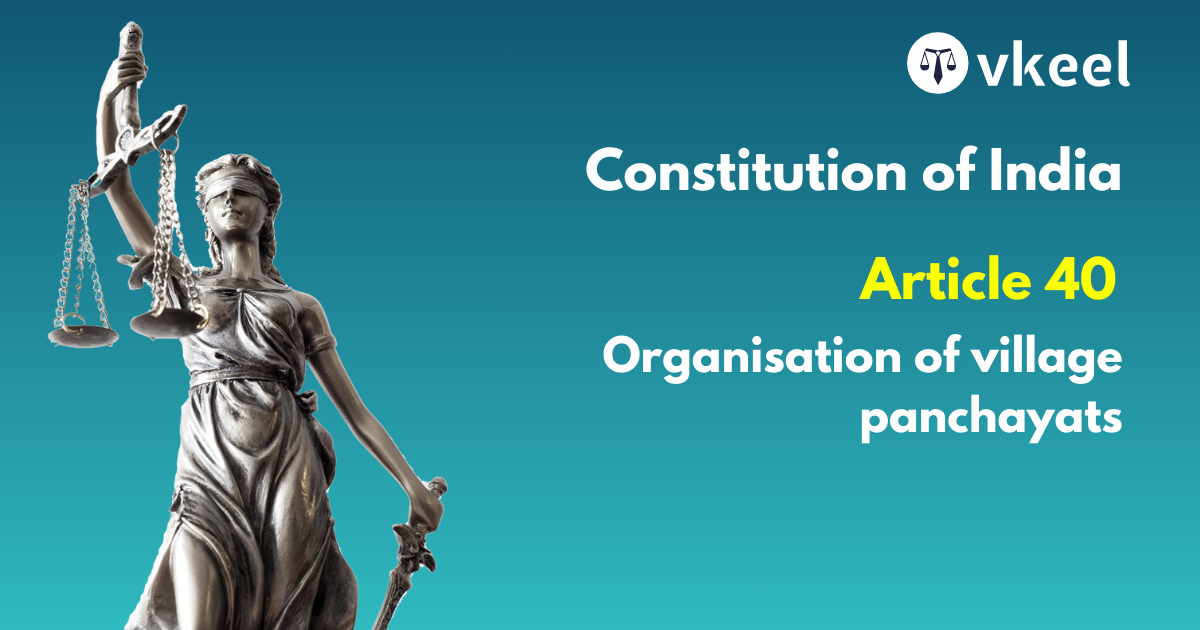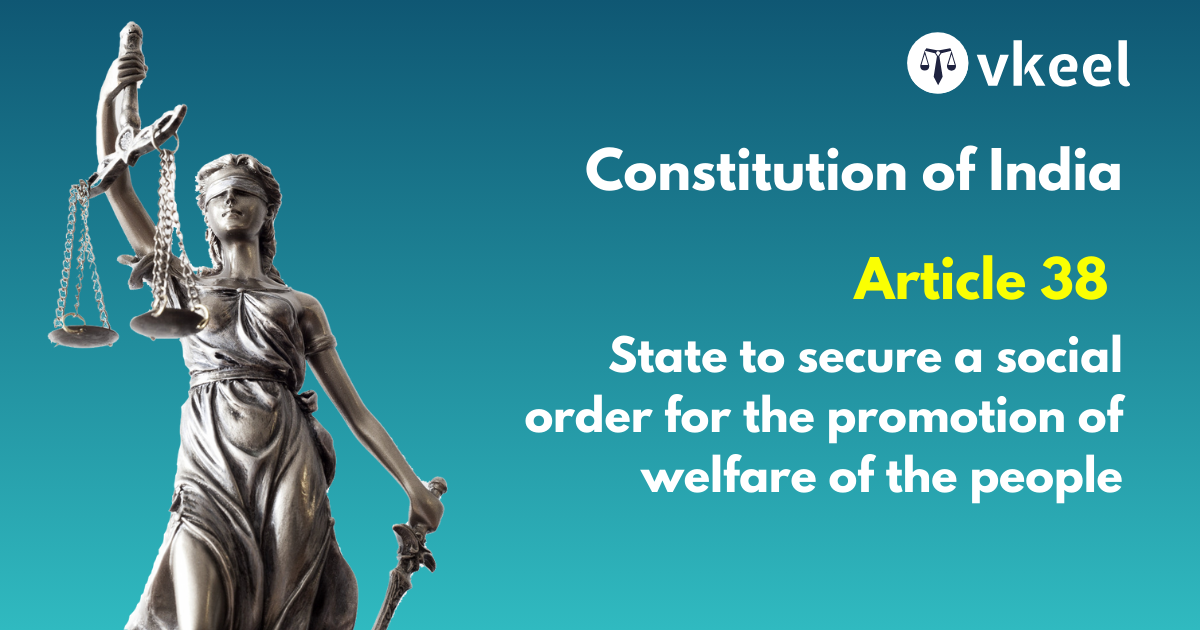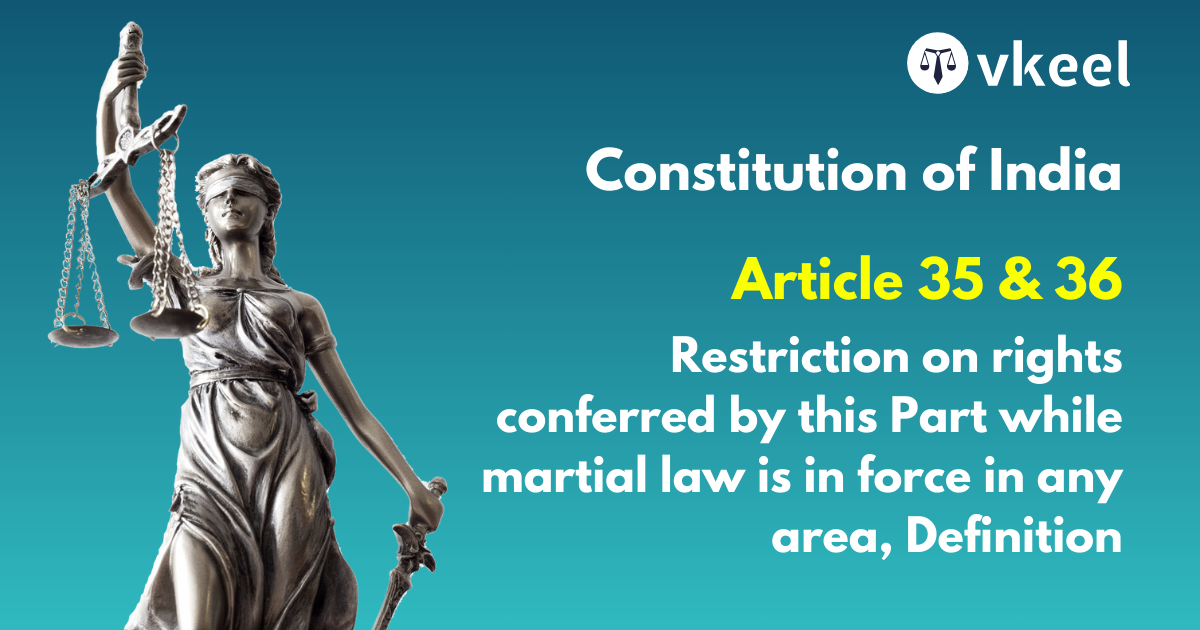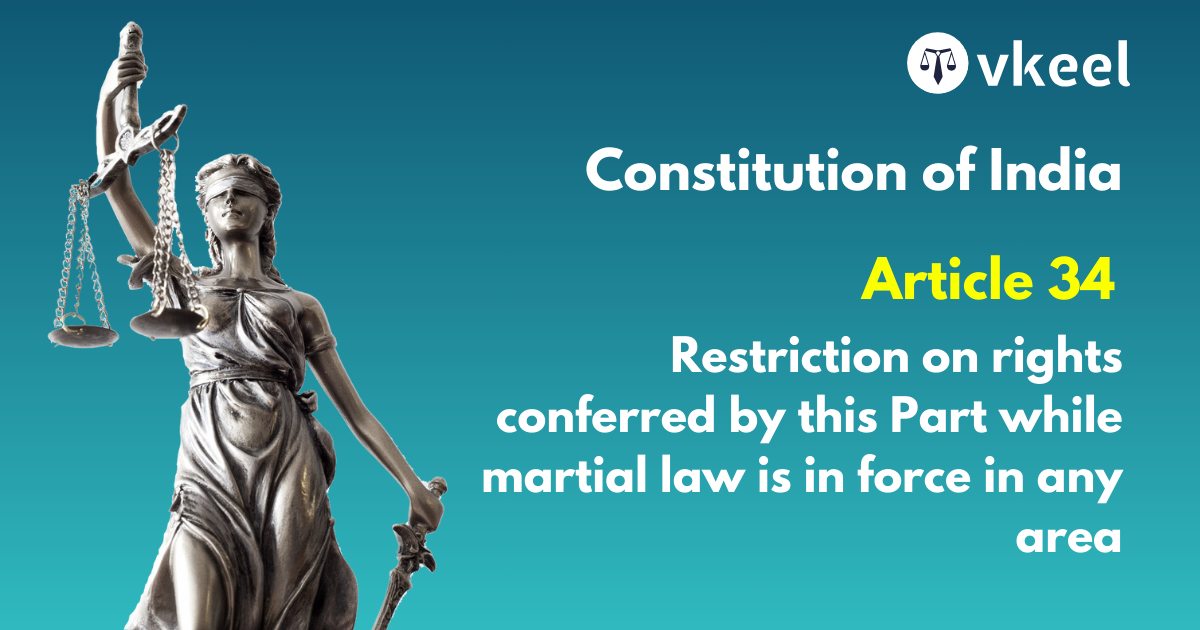Article 37 of the Constitution of India
By Joy Puri
Introduction
Article 37 of the Indian Constitution entails about the legal understanding and positioning of the Directive Principles of the State Policy.
The principles mentioned herein are termed as the Directive Principles of the State Policy. These principles stand as a guiding factor to the policies which are to be enacted by the legislature.
Albeit, these principles are not enforceable by the courts of law, but nevertheless are to the fundamental pillars of the legislations which are to be enacted in the future.
Article 37 of the Constitution of India
Application of the principles contained in this Part
The provisions contained in this Part shall not be enforceable by any court, but the principles therein laid down are nevertheless fundamental in the governance of the country and it shall be the duty of the Stale to apply these principles in making laws.
Landmark Case Laws
Mafatlal Industries Ltd. Vs Union of India, 1997 5 SCC 536
The State is on the one hand, prohibited by the constitutional injunction in article 13 from making any law or taking any executive action which would infringe any Fundamental Right and at the same time it is directed by the constitutional mandate in article 37 to apply the Directive Principles in the governance of the country and to make laws for giving effect to the Directive Principles. Both are constitutional obligations of the State. When the State makes a law for giving effect to a Directive Principle, it is carrying out a constitutional obligation under article 37 and if it were to be said that the State cannot make such a law because it comes into conflict with a Fundamental Right, it can only be on the basis that Fundamental Rights stand on a higher pedestal and have precedence over Directive Principles. But, it is not correct to say that under our constitutional scheme, Fundamental Rights are superior to Directive Principles or that Directive Principles must yield to Fundamental Rights. Both are in fact equally fundamental. There is no conflict on the whole between them; they are complementary and supplementary to each other and both aim at bringing about social change and a welfare State. The two together constitute the core or the conscience of the Constitution. Harmony and balance between them is an essential feature of the basic structure of the Constitution.
Kesavananda Bharati Vs State of Kerala, AIR 1973 SC 1461
While the Court has power to declare a statute to be unconstitutional, it should exercise great judicial restraint in this connection. This requires clarification, since, sometimes Courts are perplexed as to whether they should declare a statute to be constitutional or unconstitutional. There is one and only one ground for declaring an Act of the legislature (or a provision in the Act) to be invalid, and that is if it clearly violates some provision of the Constitution in so evident a manner as to leave no manner of doubt. This violation can, of course, be in different ways, e.g. if a State legislature makes a law which only the Parliament can make under List I to the Seventh Schedule, in which case it will violate article 246(1) of the Constitution, or the law violates some specific provision of the Constitution (other than the directive principles). But before declaring the statute to be unconstitutional, the Court must be absolutely sure that there can be no manner of doubt that it violates a provision of the Constitution. If two views are possible, one making the statute constitutional and the other making it unconstitutional, the former view must always be preferred. Also, the Court must make every effort to uphold the constitutional validity of a statute, even if that requires giving a strained construction or narrowing down its scope… Adjudication must be done within the system of historically validated restraints and conscious minimization of the judges’ personal preferences. The Court must not invalidate a statute lightly, for, invalidation of a statute made by the legislature elected by the people is a grave step. The Court must, therefore, make every effort to uphold the constitutional validity of a Statute, even if that requires giving the statutory provision a strained meaning, or narrower or wider meaning, than what appears on the face of it. It is only when all efforts to do so fail should the Court declare a statute to be unconstitutional.
Government of Andhra Pradesh Vs P. Laxmi Devi, 2008 AIR SCW 1826
It is only when there is no manner of doubt that the Statute is unconstitutional that it should be declared to be so. However, even reasonable men can sometimes differ as to whether there is a doubt or not about the constitutional validity. In other words, sometimes there can be a doubt whether there is a doubt at all. About some statutes there can be no doubt that they are unconstitutional e.g. if discriminatory treatment is given to redheads, or if a statute excluded owners of a certain make of motor vehicle from voting in a general election. However, there are other statutes about which one cannot be absolutely sure about their constitutional validity, and difficulties would then arise in this connection. All decisions in the economic and social spheres are essentially ad hoc and experimental. Since economic matters are extremely complicated, this inevitably entails special treatment for special situations. The State must therefore be left with wide latitude in devising ways and means of fiscal or regulatory measures, and the Court should not, unless compelled by the statute or by the Constitution, encroach into this field, or invalidate such law.
State of Kerala Vs N.M. Thomas, AIR 1976 SC 490
The Directive Principles contained in Part IV constitute the stairs to climb the High edifice of a socialistic State and the Fundamental Rights are the means through which one can reach the top of the edifice. The Directive Principles form the fundamental feature and the social conscience of the Constitution which enjoins upon the State to implement these Directive Principles. The Directives thus provide the policy, the guidelines and the end of socio-economic freedom and Arts. 14 and 16 are the means to implement the policy to achieve the ends sought to be promoted by the Directive Principles. So far as the Courts are concerned where there is no apparent inconsistency between the Directive Principles contained in Part IV and the Fundamental Rights mentioned in Part III, there is no difficulty in putting a harmonious construction which advances the object of the Constitution. Saying that the Directive Principles shall not be enforceable by courts. It does not mean that Directive Principles are less important than Fundamental Rights or that they are not binding on the various organs of the State. It becomes the duty of the court to apply the Directive Principles in interpreting the Constitution and the laws. The Directive Principles should serve the courts as a code of interpretation. Fundamental Rights should thus be interpreted in the light of the Directive Principles and the latter should, whenever and wherever possible, be read into the former. Every law attacked on the ground of infringement of a Fundamental Right should, among other considerations, be examined to find out if the law does not advance one or other of the Directive Principles or if it is not in discharge of some of the undoubted obligations of the State, constitutional or otherwise, towards its citizens or sections of its citizens, flowing out of the preamble, the Directive Principles and other provisions of the Constitution.
Conclusion
To conclude, the Directive Principles of the State Policy are non-justiciable The principles entailed in the Articles uphold the concepts of social equity and well-being of the citizens.
Disclaimer:
The information provided in the article is for general informational purposes only, and is not intended to constitute legal advice or to be relied upon as a substitute for legal advice. Furthermore, any information contained in the article is not guaranteed to be current, complete or accurate. If you require legal advice or representation, you should contact an attorney or law firm directly. We are not responsible for any damages resulting from any reliance on the content of this website.

